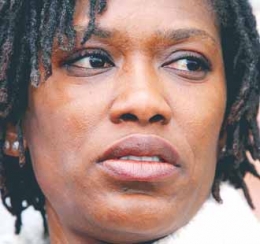TACKLING illegal immigration is among the Garda’s priorities in 2009, the force has announced in its latest policing plan.
Protecting “the frontiers” of the State and the “integrity” of its immigration systems, and clamping down on human trafficking are among the key priorities listed by gardaí for the coming 12 months.
The chief priority areas are designated as national and international security; crime; traffic; public order; customer service; and lastly, illegal immigration and human trafficking. The force has also pledged to make itself an organisation representative of the community it serves by recruiting more minorities into its ranks, and to improve its recordings of racist incidents.
In December, around 60 failed asylum seekers and illegal immigrants were deported to Nigeria at a cost of more than €150,000, in what was the 16th deportation flight to the west African country since 2002.
As the recession in Ireland worsens, public sympathy towards those who have exhausted all structures of the asylum application process could plummet. Thousands are believed to be evading deportation, while around 90 per cent of asylum applications are refused.
However, the cases of some asylum applicants may continue to attract public support from mainstream political parties and figures.
During December, the leading opposition party Fine Gael backed Pamela Izevbekhai, a Nigerian woman who came to Ireland in 2005 with her two children, claiming asylum on grounds of the threat of female genital mutilation (FGM).
In a joint statement in the Dáil last month, Fine Gael spokesperson for children Alan Shatter TD and Fine Gael spokesperson on immigration and integration Denis Naughten TD said that Izevbekhai “feared that the children would be forced by her husband’s relations to undergo a form of female circumcision now widely recognised as FGM. [It] is a barbaric practice that should not be acceptable in any society.
“In 1994 her daughter Elizabeth died as a result of this barbaric procedure which occurred as a consequence of pressure imposed on her by her mother-in-law and other in-laws. Pamela fears her daughters Naomi and Jemima could suffer a similar fate.
“For most of their time in Ireland Pamela and her two children have lived in Sligo and the children have attended Our Lady of Mercy Primary School in Sligo.”
Izevbekhai was unsuccessful in her application for refugee status and “is hopeful that the Minister for Justice will use his discretionary powers to allow her and the children remain in Ireland.”
The statement continued: “If the European Court of Human Rights had not recently requested the Government to delay her deportation with the children back to Nigeria, pending determining whether it will admit an application to the court made by her under the Human Rights Convention, Pamela and her two daughters could have been deported last week.
“Though Pamela and her children have not been granted refugee status, Minister for Justice Dermot Ahern TD has discretion to make an order allowing her and the children to stay in Ireland. We believe in the context of Pamela’s family history, and in light of the death of Pamela’s daughter Elizabeth as a consequence of this barbaric practice, that her case should be again reviewed by the minister.”
The statement concluded: “We recognise that this State could not cope with the influx of thousands of applicants seeking political asylum in Ireland for fear that their daughters could be subjected to this practice. We believe, however, the Government should take a more pro-active role in opposing this practice and should take an initiative to seek a united approach on behalf of the European Union to bring it to an end.”












